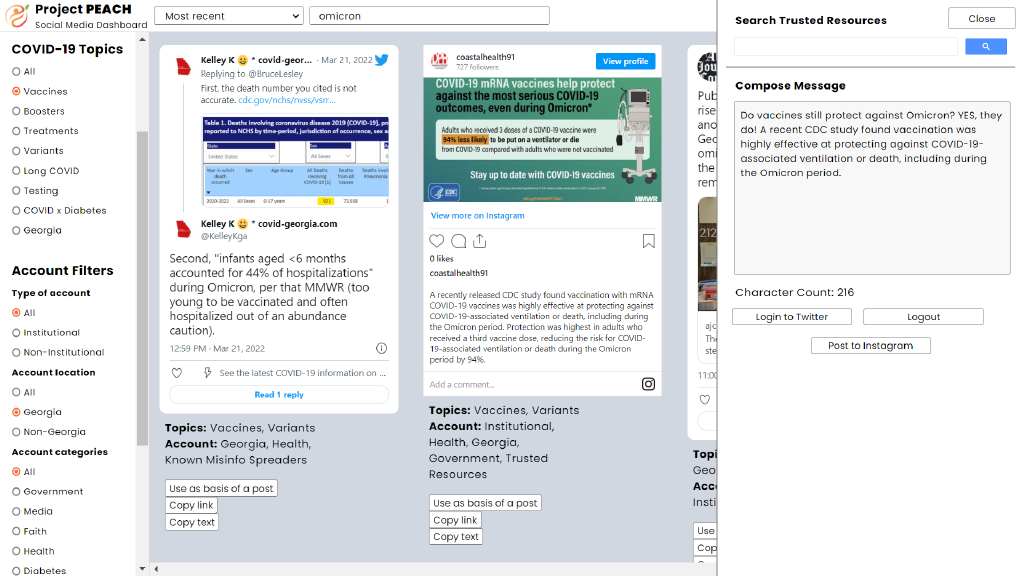Community-based COVID-19 social media monitoring and response
Online mis- and disinformation has been rampant throughout the COVID-19 pandemic, driving vaccine hesitancy and other harmful health behaviors. In the US, racialized misinformation targeting Black and other marginalized communities in particular often draws upon narratives of institutional distrust. These narratives are rooted in historical injustices they have faced from health authorities and other institutions, most notoriously the Tuskegee syphilis experimentation but also in commonplace discriminatory medical practices.
I have been collaborating with researchers at Morehouse School of Medicine, Emory University, and other community-based partners to address COVID-19 vaccine hesitancy in the state of Georgia, where the COVID-19 vaccination rate remains among the lowest in the US (see Georgia CEAL and Project PEACH). I have been leading a team at Georgia Tech's T+ID Lab to design and develop a social media monitoring and outreach dashboard for our partners to use in their work as community-based trusted messengers. The current live dashboard (Github repo) shows COVID-19 related social media content from locally and topically relevant accounts, and allows users to create messages based on the content they see and share it on social media or other channels. We're also working on a page that organizes fact-checked health communication resources, and a way to recommend relevant resources to respond to specific misinformation messages.

